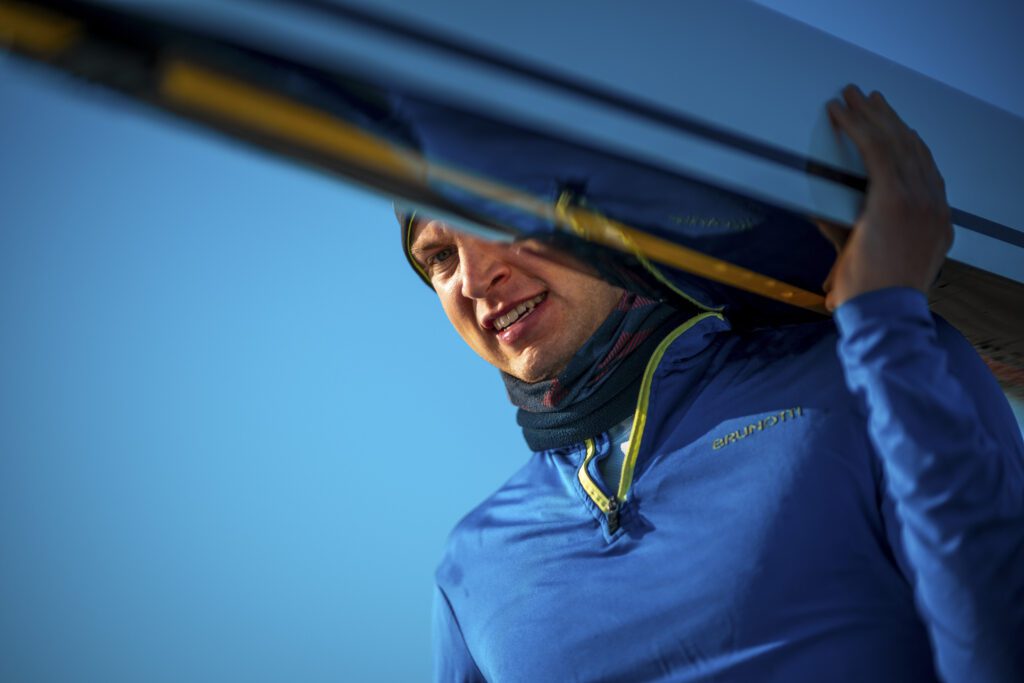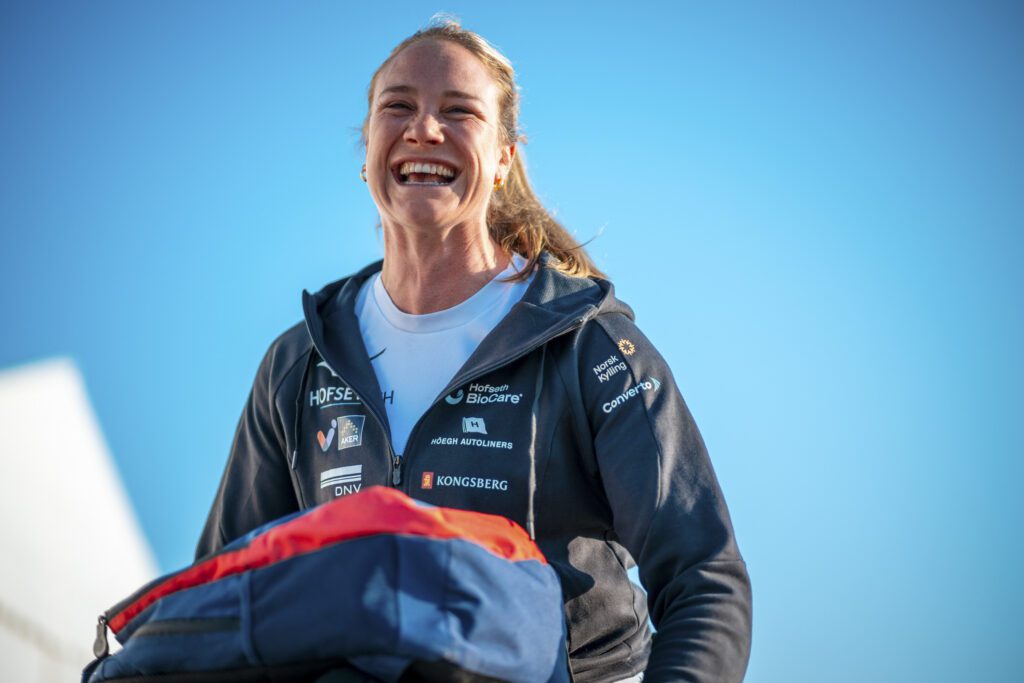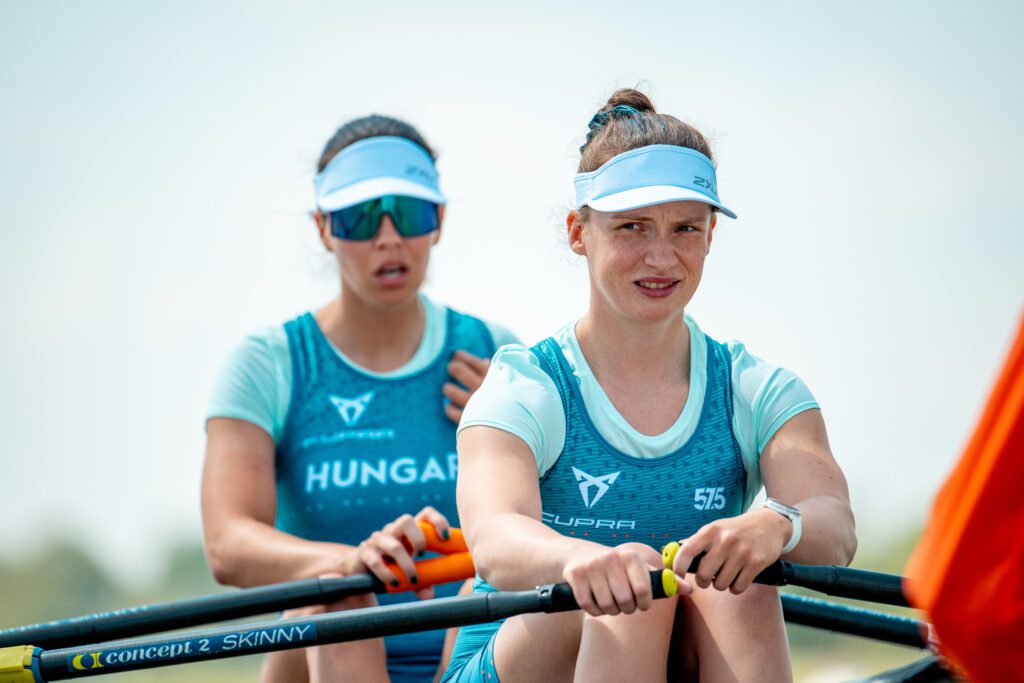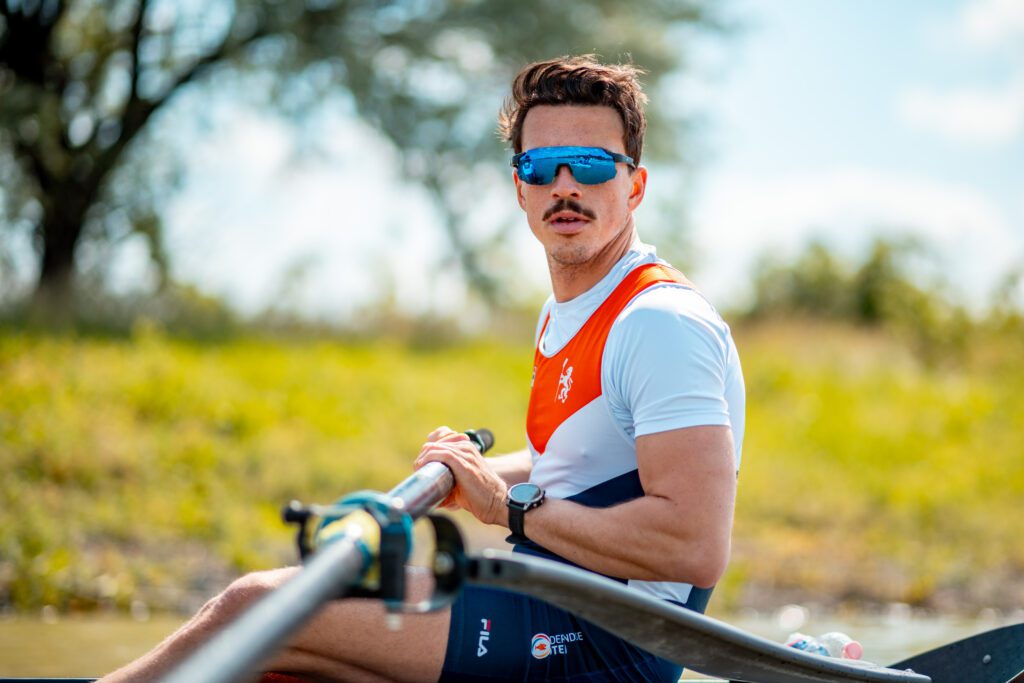Caryn Davies won Olympic gold in the W8+ in Beijing and London for USA. Last summer Davies qualified for Tokyo in the W4-.
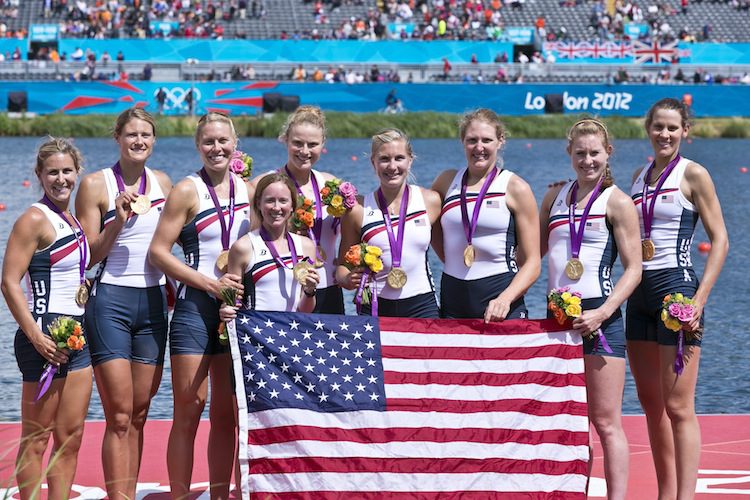
Photo Caryn Davies (far right) wins gold at London 2012.
Where were you the morning of Tuesday March 24th, 2020?
Just as my parents’ generation remembers where they were when JFK was shot, and my generation remembers what they were doing when the first plane hit the twin towers, I will always remember how I learned that the Tokyo 2020 Olympics have been postponed to 2021: I awoke to find text messages and emails from friends offering condolences.
My first reaction was relief. I even did a little jig on the way to the kitchen for breakfast.
Sometimes, when we’re met with news as unfathomable as the entire Olympic Games having been postponed for the first time in history, our brain can’t quite grasp the big picture, so it focuses on the insignificant details. I was simply relieved that I no longer had to do the 2x6k hard erg workout originally scheduled for the next day.
Training had been getting progressively more difficult to manage in recent weeks. First, the USA women’s team was kicked out of the Princeton University boathouse, our normal training center, when the university shut down. We were left with our boats on a trailer in the parking lot.
The next day, when the coach arrived and found us all sitting on our respective (appropriately socially distanced) rear bumpers awaiting the start of practice, he said, “Geez, guys, it looks like you’re having a tailgate here. Can you try to be a little less conspicuous next time?”
Some days later we were restricted to groups no larger than eight, so we rowed in shifts. No more switching pair partners every week, and no more carrying your pair partner’s oar to the dock: each person is only allowed to touch her own equipment. Even so, a passerby called the university to complain about our little gatherings. From then on, it was one pair allowed on the dock at a time.
Finally, New Jersey issued the shelter-in-place order we had been expecting. Each of us took an erg home to her respective host family’s house to train in solitude. The weather was only just above freezing in the mornings, and my erg was set up in an open-sided carport, meaning I had to wear pogies on the erg—a first for me.
So yes, I had been dreading that cold, hard, lonesome Wednesday workout.
But perhaps more to the point, I wasn’t ready to consider the larger ramifications of postponement. At 38 years old, I’m already pushing my body’s limits for performance and recovery. I’m not sure it can handle another year of training. Plus, I was planning to get married and start a family later this year. Another year means I’ll be in my 40s by the time I have kids—if I’m even able to have them at all.
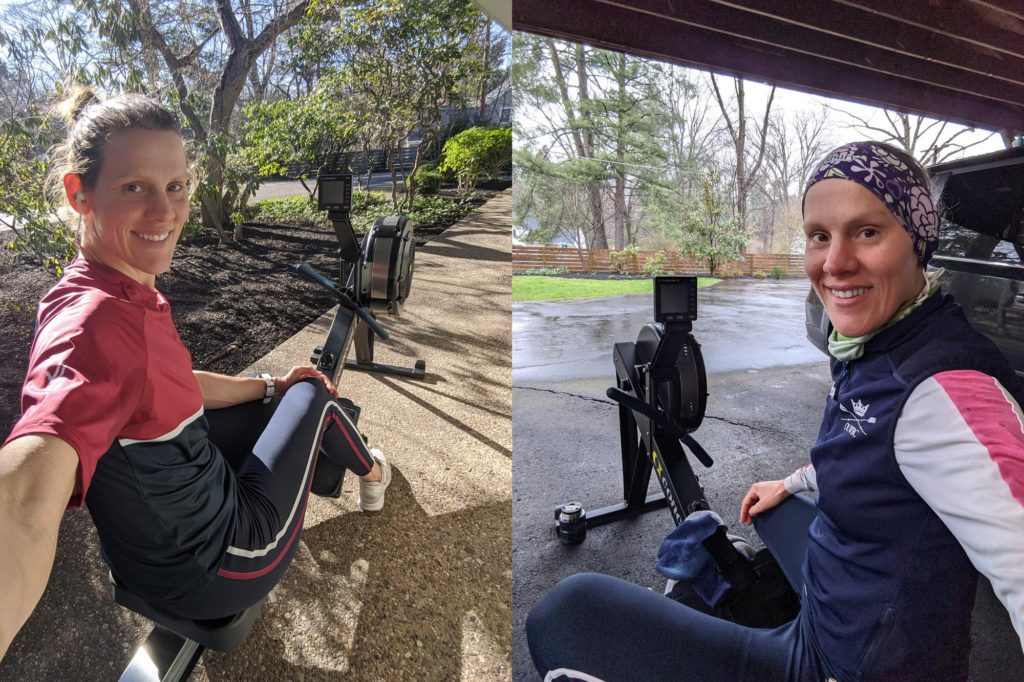
Photo Davies training on the erg at home during the Corona virus lockdown.
Credit Caryn Davies
As I considered my predicament, I was reminded of another Olympic postponement: the heats of the women’s eight in Beijing, in 2008. We were lined up and locked on to the starting blocks with mere minutes to go when the officials told us to take it back to the boathouse. There was a thunderstorm coming, and they had decided to postpone our event until the next day.
Once we got over the initial disbelief, my teammates and I rowed home in good spirits. We even laughed about how the fastest way to get back to the boathouse (which was beyond the finish line) would have been indeed to race. Even though it wasn’t an ideal situation, we knew that all we need do was handle it better than our competition. The next day we came back even more ready to race, and after winning the heat, we went on to win the gold medal in the final a week later.
We demonstrated that day how a champion meets unexpected challenges with poise; how she turns an obstacle into an opportunity to raise her game. If I want to prove myself a champion, I’m going to have to figure out how to do that once again.
The good news is that I get a whole year to work on it. Last year, when my fiancé was making plans to (hopefully) watch me compete in Tokyo this year, he said jokingly, “I wouldn’t want to miss your second-to-last Olympics!” In a way, he was right. Although I didn’t know it at the time, this past year was my second-to-last Olympic year.
Overall, I’d say the year went well for me. I stayed healthy and consistently improved. But there are things I will do differently the second time around. Most of all, I want to enjoy it more. After all, this time it’s almost certainly my last Olympic year.
I confess I’m still not certain I’ll compete in Tokyo 2021. It’s likely, but there are a lot of unknowns that I still need to work out. For now, I will continue training. I even ripped a 2x6k on the erg yesterday. The weather was warmer, so I didn’t need to wear pogies. With no competitions in the foreseeable future, it’s the small wins like warm hands on the erg that must keep us going.
